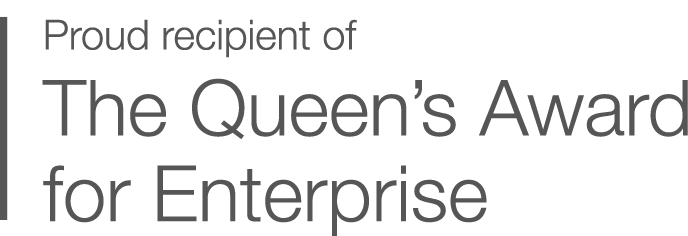Zinc has many health benefits for your body, which you can learn below. This essential mineral regulates proteins, helps to structure your DNA, and assists with essential immune function. The BetterYou experts explain how to spot the signs of deficiency and make the most of the health benefits of zinc.
Table of Contents:
What is Zinc?
Zinc is a mineral with the chemical symbol Zn. It’s a silver-grey metal at room temperature, and makes up other compounds within the body. The mineral is present in every cell in the body, and is necessary for the activity of over 300 enzymes. Enzymes are proteins which help to speed up the vital reactions within the body. These enzymes aid in digestion, metabolism, nerve function and more. Zinc benefits cell growth too, which means it is a vital nutrient, and zinc supplements are good for the whole body.
9 Zinc Benefits
Zinc benefits many processes in the body which are essential for your everyday health. This includes the vital cell division which affects all areas of your body. Without enough zinc, you may not experience these zinc benefits, and may be at risk of a mineral deficiency. Some of the benefits of zinc include:
- Reducing zinc deficiency - Not getting enough zinc in your diet or through supplements could leave you deficient. This can cause unwanted side effects which taking zinc will help to prevent.
- Immune function - Zinc benefits the function of your immune system, which helps to protect you from disease. Therefore, zinc is often added to lozenges, cold treatments, or immune system supplements. Assisting with immunity is also a benefit of vitamin D, benefit of iron, and a benefit of vitamin B.
- Wound healing - Zinc benefits the skin too and is often included in hair, skin, and nails vitamins. Those with long-term wounds may have lower zinc levels and need to increase their intake. Vitamin K benefits wound healing too by clotting the blood around the wound.
- Gene expression - Genes are made up of smaller components including RNA. Zinc benefits the making of this RNA by speeding up the reaction. This makes zinc essential for gene expression. Gene expression is how the body “reads” information about the cells and products it makes.
- Enzymatic reactions - The mineral is present in every cell in the body, including enzymes. Zinc benefits the enzymes which speed up reactions by either stabilising the structure of these enzymes, or by directly taking part in the reactions themselves.
- Protein synthesis - Meaning to make proteins, zinc benefits this creation by regulating the structures of the elements which go into making proteins.
- DNA synthesis - Thanks to its role in cell division, zinc benefits DNA synthesis by stabilising the structure of the elements required to make DNA.
- Growth and development - Thanks to zinc’s benefits with cell division, this means it helps growing and development because your body is made of cells.
- Act as an anti-inflammatory - Zinc may help to reduce oxidative stress caused by free-radicals and therefore help to reduce inflammation.
If you are not taking in enough zinc, from supplements or your diet, you may not experience these zinc benefits. Instead, you may be at risk of developing low levels. This is when the levels of vitamins and minerals is not sufficient, and can cause certain unwanted, detrimental health effects.
8 Signs of Zinc Deficiency
What is zinc deficiency? This is when your nutrient intake is not high enough to allow your body to function as it should. Zinc benefits your health in vital ways which are important and so avoiding low levels is essential. Without the recommended daily intake, you could experience these detrimental side effects. According to the NIH, these signs can include:
- Mental tiredness, which could also be a sign of sleep deprivation
- Wounds which don’t heal, which could also be a sign of vitamin C deficiency
- Loss of taste or smell
- Weight loss
- Loss of appetite
- Hair loss
- Diarrhoea
- Impotence
If you are experiencing these signs of zinc deficiency, you may need to increase your nutrient levels to help you experience zinc benefits. These signs, however, may also be side effects of other illnesses and a consultation is required to diagnose zinc deficiency. Always speak to your medical practitioner or other health professional if you think you have a deficiency and before taking supplements.
Spotting if you have low levels is important to ensure your body is receiving the dosage of nutrients it needs to function properly and keep you healthy. This can help identify vitamin B deficiency, iron deficiency, or vitamin D deficiency. That way, you can know whether you need multivitamin supplements to encourage your intake and help you see the benefits of zinc.
How Much Zinc Per Day?
Zinc supplements can help to increase your levels, to help you experience zinc benefits. At BetterYou, we have pioneered pill-free supplements to make nutritional intake even easier. With hassle-free oral sprays, you can encourage your daily intake without the need to take a tablet.
The body does not make zinc, so you need to acquire this mineral through your diet or supplements in order to have optimum levels.
According to the NIH, the recommended daily intake of Zinc, for those aged 19 years and older, is:
- 11 mg for men
- 7mg for women
Taking high doses of zinc reduces the amount of copper the body can absorb. This can lead to anaemia and weakening of the bones. That is why it is important to keep to the recommended intakes to ensure your nutritional needs are met. This includes staying within the tolerable upper limit of 40mg.
Benefits of Taking Zinc with Magnesium
Taking other vitamins and minerals alongside this mineral can benefit zinc. One of these is the mineral magnesium. Magnesium benefits your body by regulating its zinc levels. Zinc can encourage the body to absorb magnesium more efficiently. That way, taking magnesium and zinc together could be recommended. It should be noted that high doses of zinc can be detrimental to magnesium absorption. This could lead to magnesium deficiency, so making sure your zinc intake is at recommended levels is essential.
9 Sources of Zinc
Zinc can be found in many foods as a natural source, as well as in supplements. Increasing your intake of these foods can encourage you to experience the benefits of zinc for your body. The body does not make zinc and so you need to regularly intake the mineral in order to experience these zinc benefits. Sources of zinc include:
- Zinc supplements
- Fortified cereals
- Whole grains
- Milk, and other dairy products
- Oysters
- Red meat
- Poultry
- Beans
- Nuts
Those who follow certain restricted diets may not intake enough of the vital nutrients needed for a balanced and healthy diet. This means they may miss out on the benefits of zinc. Vegans and vegetarians may not receive the nutrients commonly found in meat, fish, and dairy products, whilst those avoiding gluten may not receive the nutrients found in grains and cereals. BetterYou have ranges of vegan supplements, vegetarian supplements, and gluten-free supplements. That way, everyone can encourage proper nutrient intake, no matter their dietary restrictions, and see these essential benefits of zinc.




